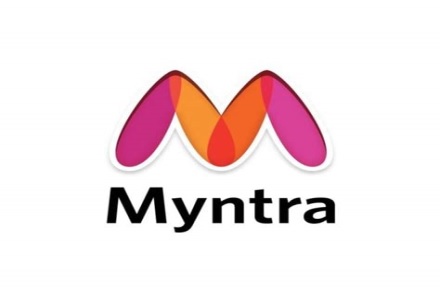SAP ABAP
SAP ABAP Certification Training
SAP ABAP (Advanced Business Application Programming) certification Training is intended for those who wish to master the programming language used by SAP and gain abilities for modifying, improving, and developing apps inside the SAP ecosystem. This is a general guide to training for SAP ABAP certification.
Your proficiency in developing and customizing SAP applications is demonstrated by your SAP ABAP certification. Opportunities to work as an ABAP developer, SAP consultant, or SAP technical architect may become available as a result. It’s important to note that the prerequisites and specific curriculum may change based on the certification version and level offered by SAP. For the most current and accurate information, visit the official SAP certification website
Why enroll for SAP ABAP Certification training course?
Enrolling in an SAP ABAP (Advanced Business Application Programming) certification training course can offer numerous benefits and advantages to both beginners and experienced professionals in the field of SAP and software development. Here are compelling reasons to consider pursuing SAP ABAP certification training
Enrolling in an SAP ABAP certification training course is a strategic investment in your career, providing you with valuable skills and credentials that can lead to a rewarding and well-compensated career in SAP application development and customization.
SAP ABAP Training Course Benfits
Pursuing SAP ABAP (Advanced Business Application Programming) training courses offers numerous benefits that can enhance your career and skillset, whether you are a beginner or an experienced professional in the field of SAP and software development. Here are some key benefits of enrolling in SAP ABAP training courses:
1.Expertise in SAP Programming
2.Increased Career Opportunities
3.Higher Earning Potential
4.Industry Recognition
5.Global Applicability
6.Comprehensive Knowledge
7.Comprehensive Knowledge
8.Personal Growth
9.Competitive Advantage
10.Access to Resources
11.Problem-Solving Skills
12.Integration with SAP Ecosystem
13.Community Engagement
14.Employer Trust
15.Continuous Learning
Overall, SAP ABAP training courses provide a structured and comprehensive path to acquiring the skills and knowledge needed to excel in SAP application development and customization. These courses offer career growth opportunities, enhanced earning potential, and the ability to make a significant impact on an organization’s SAP solutions.
SAP ABAP skills Covered
SAP ABAP (Advanced Business Application Programming) skills cover a wide range of technical and programming capabilities necessary for customizing, enhancing, and developing applications within the SAP ecosystem. Here is a list of key SAP ABAP skills and areas typically covered in ABAP training:
- 1.ABAP Programming Fundamentals:
- Understanding ABAP syntax, data types, and basic programming concepts.
- Creating and modifying ABAP programs.
- 2.Data Dictionary (DDIC):
- Working with SAP’s Data Dictionary to define and manage data structures, such as tables, views, and indexes.
- 3.ABAP Development Tools:
- Utilizing SAP ABAP development tools like the ABAP Workbench (SE80) and the ABAP Development Environment (ABAP in Eclipse).
- 4.ABAP Objects:
- Understanding object-oriented programming (OOP) concepts in ABAP, including classes, objects, methods, and inheritance.
- 5.Database Access:
- Retrieving and updating data from/to the database using Open SQL statements.
- Using SAP’s database-independent SQL approach.
- 6.Modularization Techniques:
- Employing modularization techniques, such as function modules, subroutines, and methods, to enhance code reusability.
- 7.SAP Enhancement Framework:
- Implementing enhancements and modifications using user exits, Business Add-Ins (BAdIs), and Enhancement Spots.
- 8.ABAP Debugging and Analysis:
- Debugging ABAP programs to identify and resolve issues.
- Analyzing and optimizing code for performance improvements.
- 9.SAP Internal Tables:
- Working with different types of internal tables (e.g., standard, sorted, hashed) to manipulate data.
- 10.ABAP Dictionary Views:
- Creating and using database views in ABAP to simplify complex data retrieval operations.
- 11.SAP Script and Smart Forms:
- Designing and modifying SAP Script and Smart Forms for customized document generation.
- 12.User Interface (UI) Development:
- Building user interfaces using SAP Screen Painter and SAP UI technologies like Web Dynpro ABAP.
- 13.Data Migration:
- Writing ABAP programs to support data migration tasks, such as data extraction, transformation, and loading (ETL).
- 14.Web Services and RESTful ABAP Programming:
- Developing web services and integrating with external systems using RESTful ABAP programming techniques.
- 15.SAP Application Log:
- Implementing error handling and logging mechanisms using the SAP Application Log.
- 16.SAP Integration Technologies:
- Integrating SAP systems with other systems using various integration technologies like IDoc, RFC, and SOAP.
- 17.Performance Tuning:
- Identifying and optimizing performance bottlenecks in ABAP code.
- Implementing best practices for efficient data processing.
- 18.Batch Input and Data Upload:
- Automating data uploads and batch processing using Batch Input sessions and Data Transfer Workbench (LSMW).
- 19.Security and Authorization Checks:
- Implementing security measures, including user authentication and authorization checks in ABAP programs.
- 20.ALV (ABAP List Viewer):
- Creating interactive and dynamic reports using ALV grids and lists.
- 21.SAP Fiori and UI5 Development:
- Developing modern, responsive, and user-friendly UI applications using SAP Fiori and SAPUI5.
- 22.Testing and Quality Assurance:
- Writing test scripts and performing unit testing for ABAP programs.
- Following quality assurance and code review best practices.
These are some of the core SAP ABAP skills that developers need to become proficient in SAP application development and customization. Depending on the specific requirements of your projects and the complexity of the tasks you undertake, you may delve deeper into certain areas of ABAP programming. Continuous learning and staying up-to-date with the latest SAP technologies are essential for maintaining your ABAP expertise.
Our Learners Works At
Top companies from all around the world have recruited upGrad alumini






Why LearnNow for SAP ABAP Certification Training in India
Acquiring knowledge Training for SAP ABAP (Advanced Business Application Programming) certification in India provides a number of benefits and chances for people who want to improve their current skills or pursue a career in SAP application development. Here are some strong arguments in favor of signing up for a SAP ABAP certification course in India.In conclusion, India provides a favorable atmosphere for people seeking SAP ABAP certification training, including reasonably priced options, easy access to reliable training providers, and a plethora of career prospects in a developing IT sector. Learning SAP ABAP in India can be a wise decision if you want to advance your career in SAP or just get started.
Course Curriculum
- Overview of SAP and its importance in business.
- Introduction to ABAP as SAP’s programming language.
- Introduction to the ABAP Workbench (SE80) and Integrated Development Environment (IDE) for ABAP in Eclipse.
- Navigating and using ABAP development tools.
- ABAP syntax, data types, and variables.
- Conditional statements (IF, CASE) and loops (DO, WHILE, FOR).
- Exception handling with TRY…CATCH.
- Working with the SAP Data Dictionary.
- Creating database tables, indexes, and views.
- Using Open SQL to retrieve and manipulate database data.
- Creating and using function modules.
- Understanding subroutines and methods.
- Implementing modularization in ABAP programs.
- Introduction to object-oriented programming (OOP) concepts.
- Classes, objects, methods, inheritance, and polymorphism in ABAP.
- Enhancements and modifications using user exits, Business Add-Ins (BAdIs), and Enhancement Spots.
- Debugging techniques for ABAP programs.
- Performance analysis and optimization of ABAP code.
- Retrieving data from the database using SELECT statements.
- Creating interactive and ALV (ABAP List Viewer) reports.